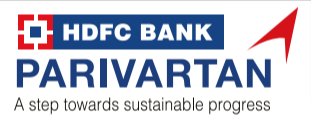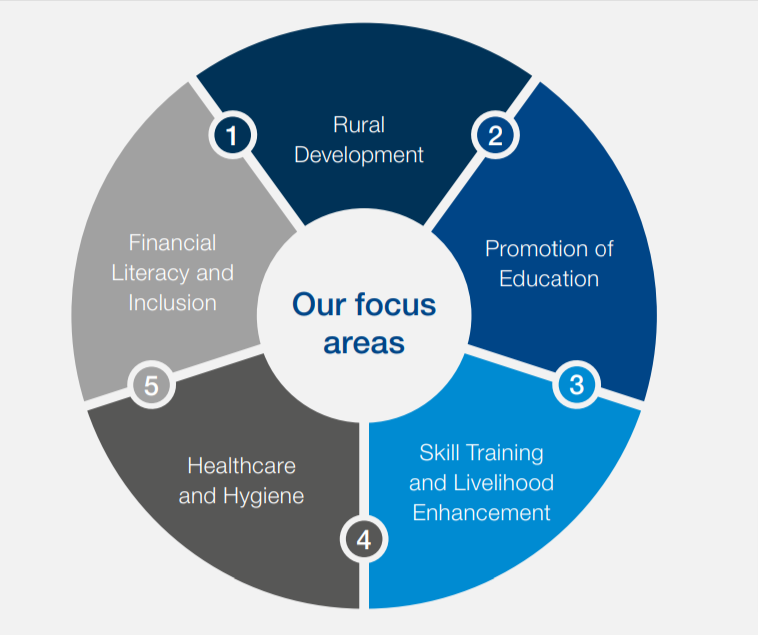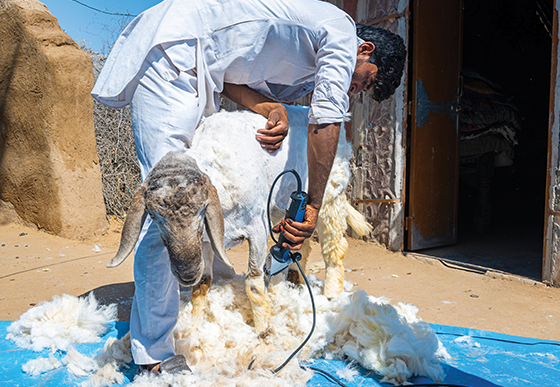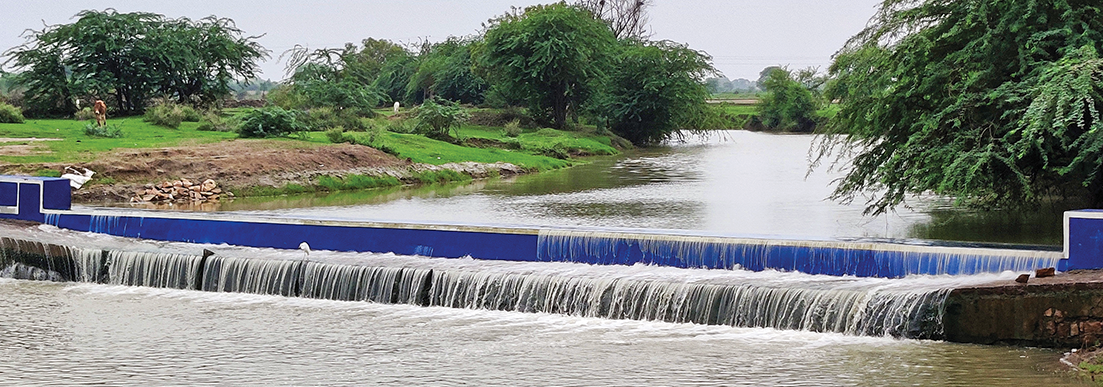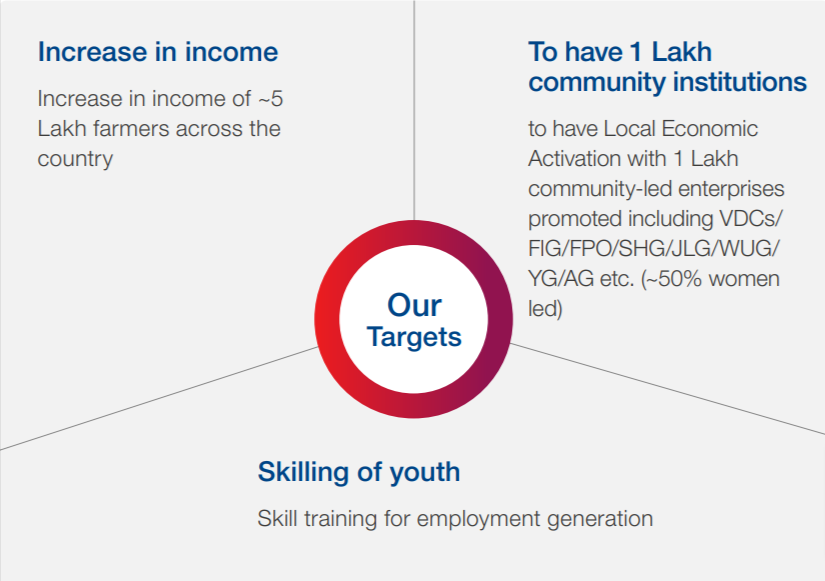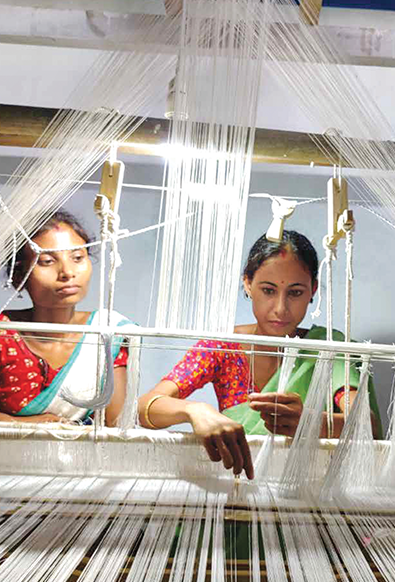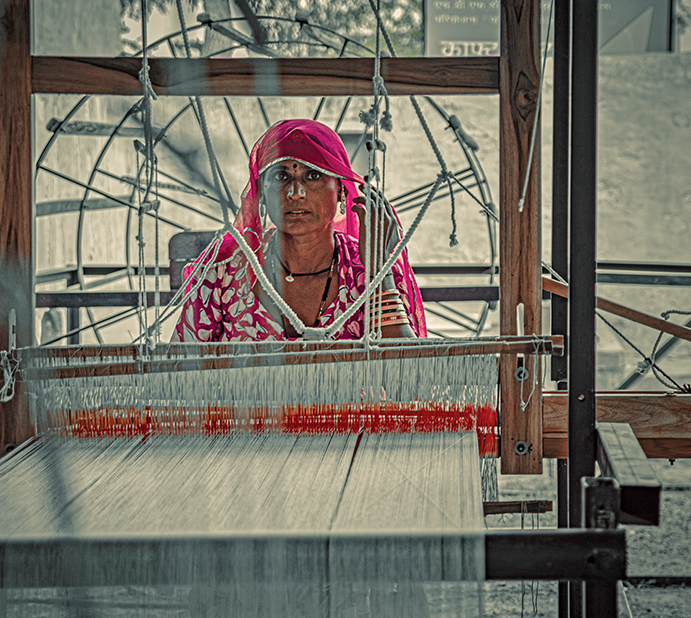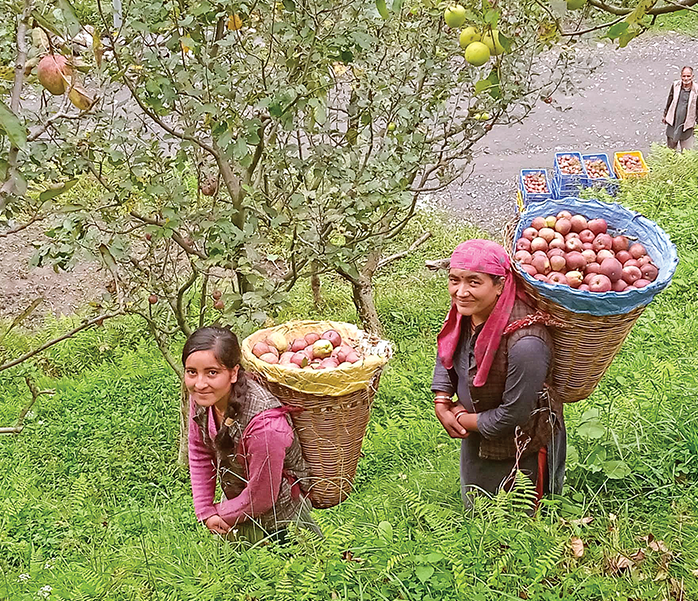We are implementing a programme to promote education in line with India’s Sarva Shiksha Abhiyaan. Under this theme, we provide multi-faceted support to schools, to enhance the quality of education – which includes training the teachers, providing scholarships and career guidance to students, as well as infrastructure support to schools, such as building toilets and improving classrooms. We have dedicated programmes for improving teachers' skills and scaling up no-cost solutions for improving existing systems and processes. We have also been working towards establishing libraries, scientific labs and digital classrooms.
Under this theme, we have set the goal of enhancing the quality of education in government schools through a threedimensional, target-driven approach. The first dimension aims to convert 2,500 traditional schools into smart schools, to establish a favourable learning environment and enable teachers to utilise various efficient teaching-learning methods. We have identified six building blocks for the development of smart schools and would be providing targeted support, based on a detailed need assessment and situational analysis of the availability of adequate infrastructure such as space and electricity.
The second dimension aims to support meritorious yet underprivileged students with scholarships, to not let the financial crises interrupt the development of bright young minds.
We identify economically backward students with an annual family income below `2.5 Lakh and a minimum of 55% marks on their latest available marksheet.
The third dimension targets quality of education in schools. We aim to achieve 70% of students in all schools (those under intervention) at class appropriate learning (CAL) levels. The CAL levels are assessed as per the NCERT defined framework in classes 3, 5, and 8 through the National Achievement Survey in language, mathematics, EVS, science, and social science.
Under the Skills Training and Livelihood Enhancement theme, we focus on the economic development of farmers and youth in rural areas by providing means of generating income through agricultural or non-agricultural activities. Since its beginning, this initiative has assisted around 2.54 Lakh+ people. The overarching objective is to empower the disadvantaged by providing them with greater possibilities, assisting them in finding local jobs, increasing their household income and discouraging migration. We also support women Self Help Groups (SHGs) or Joint Liability Groups (JLGs) by providing occupational skills training, financial literacy, credit counselling, livelihood finance, and market linkage. We have started SLI EMI collections through Common Service Centre operators (CSC VLE) providing convenience to customers at the village level.
We have set separate goals for individual and institutional capacity development under this theme.
The first goal focuses on increasing farmers' income across the country. We have defined three distinct subgoals to move forward in a targeted and systematic way. Through the first sub-goal, we aim to reach 5 Lakh small and marginal farmers (with annual income below `60,000) and support them in maximising output and reducing input costs. We are also enabling farmers to adopt modern and innovative farming tools and techniques, by providing them exposure visits to different fields and agricultural institutes, and supporting them with seeds, fertilisers, and other farm support materials. Additionally, we help farmers diversify their income by supporting them in allied activities such as livestock rearing, timber, horticulture, and fishery, among others.
The second sub-goal relates to the promotion of 1 Lakh community led enterprises to boost local economic activities, of which ~50% would be women-led. Under this, we encourage the economically deprived communities to engage in entrepreneurship on an individual or a cluster basis. We support identification of prospective economic activities in the intervention villages and assist the community members in founding and operating an enterprise – which include beauty parlours, small shops, goateries, poultry, tailoring, etc. for individual beneficiaries, and processing units, packaging units, fisheries, and handicrafts, etc. for group enterprises, established through FPO, SHG, and JLG.
The third sub-goal relates to skill development for employment generation where we provide classroom/online/blended skill development training in trades that could lead to job placement or self-employment opportunity for unemployed youth, school dropouts and landless farmers. Our training programmes typically have certifications from the NSDC, the Sector Skill Council, or other qualified non-government agencies.
The second goal relates to the development and sustenance of institutions for livelihood enhancement – particularly community institutions such as village development committees, farmers’ groups, self-help groups, water user groups, sanitation committees, youth groups, and adolescent groups. We aim to develop and support 1 Lakh community institutions. The Bank’s intervention could range from a few months to three years. The activities are related to agriculture, water, sanitation, health, livelihood, and other rural development work.
8.08 Lakh+
WOMEN ENTREPRENEURS TRAINED*
8,470 +
SHGs REVIVED/FORMED/TRAINED*
*Refers to achievement since inception till March 31, 2022

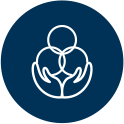 Social & Relationship Capital
Social & Relationship Capital

